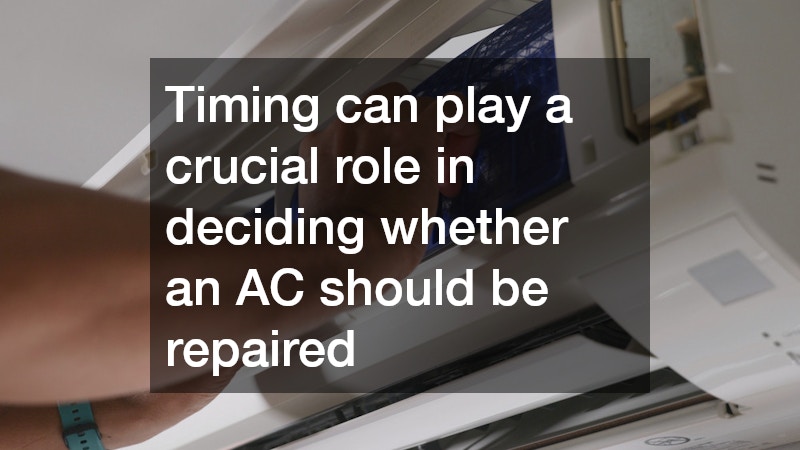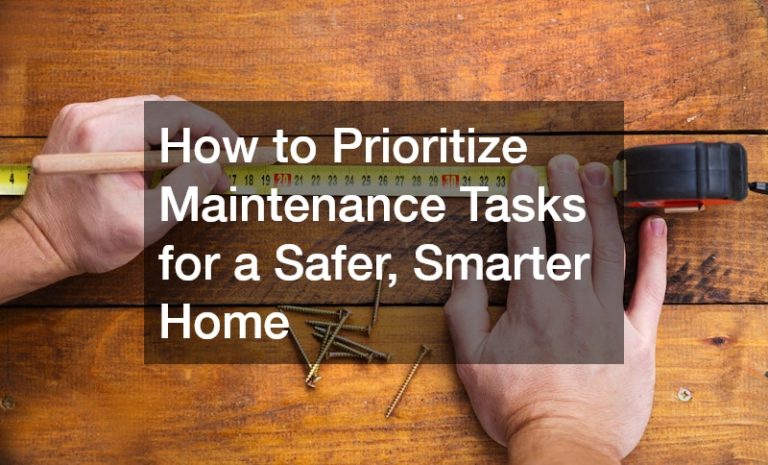

Deciding between repairing or replacing your air conditioning unit can be a tough decision. With the right guidance, you can make an informed choice that provides both comfort and savings. This article explores whether your AC needs simple repairs or if it’s time for a full replacement, ensuring you have all the information you need.
Signs Your AC Needs Repairs
When your air conditioning system starts malfunctioning, it often shows symptoms that repairs are needed. Common signs include irregular temperatures, where certain rooms are not being cooled as effectively as before.
Unfamiliar noises such as banging or clanking might indicate loose components or debris trapped in the system. Additionally, if you notice unusual smells emitting from the unit, it might suggest mold or burnt wiring that requires professional attention. High energy bills without an increase in usage can also be a warning sign that your system isn’t operating efficiently.
Timing can play a crucial role in deciding whether an AC should be repaired. Early detection of issues often results in simpler and more cost-effective repairs. Postponing fixes can lead to more extensive damage, increasing both the difficulty and expense of repairs. Engaging with an expert from a reputable HVAC company early can help pinpoint these issues accurately. Remember, repairs are typically less invasive and more economical than replacements when problems are caught early enough.
Your HVAC system is a complex piece of machinery that works hard to keep your home comfortable. Simple repairs can often restore your system’s efficiency and prolong its lifespan, preserving your initial investment. Addressing problems promptly prevents further wear and tear that could lead to more significant breakdowns. Regular maintenance can preempt these issues, ensuring that your air conditioning system remains in top condition. Consulting with an HVAC professional can ensure that repairs are handled correctly, maintaining the unit’s performance and efficiency.
When to Consider a Full Replacement
There are scenarios where a full replacement of your AC system becomes the more sensible option. Age is a significant factor; if your unit is over 10-15 years old, it may lack the efficiency and reliability of modern systems. Frequent breakdowns where multiple components are failing could mean that patching up old technology becomes less cost-effective in the long run. Advances in energy-efficient models can offer substantial savings on your energy bills, which may offset the cost of a new system. If the cost of repairs is nearing or surpasses 50% of the cost of a new unit, replacement should be strongly considered.
Deciding on a replacement can also hinge on matters of energy efficiency and long-term sustainability. Newer models are often equipped with advanced technology that enhances performance and reduces your household’s carbon footprint. An HVAC company can provide options that are environmentally friendly and tailored to your home’s specific needs. Additionally, rebates and tax incentives may be available for energy-efficient units, providing further financial motivation to upgrade. Balancing the initial cost against long-term benefits is crucial in making the right decision for your household.
While a full replacement might seem daunting, it offers the opportunity to upgrade to the latest technology and improve home comfort significantly. New systems often come with enhanced features such as programmable thermostats, sensors, and compatibility with smart home devices. These upgrades can not only make your life more convenient but also optimize energy use effectively. A qualified HVAC technician can provide a thorough assessment and guide you through the selection process, ensuring your new system is the right fit. Investing in a modern, efficient AC system is an investment in your home’s future comfort and efficiency.
Choosing the Right HVAC Company
Finding the right HVAC company to handle repairs or replacements can greatly impact the outcome of your decision. When selecting a provider, consider their reputation and experience in the field to ensure reliable service. Look for transparent pricing and comprehensive warranties that provide peace of mind long after installation or repairs. Customer reviews and testimonials are invaluable resources that reflect the company’s professionalism and customer satisfaction. Remember, a well-established company is more likely to offer ongoing support and handle any future needs.
An experienced HVAC company can offer valuable insights and recommendations tailored to your specific situation. They should be able to perform a detailed assessment of your current system, identifying whether a repair or replacement is more beneficial. In-depth knowledge of the latest technologies and trends allows them to suggest the best options available for energy efficiency and functionality. Moreover, a reputable company will guide you through the installation process seamlessly, should a new system be necessary. Their expertise ensures that the transition from an old system to a new one is smooth and hassle-free.
Building a long-term relationship with a trusted HVAC company provides continuity and confidence. Regular maintenance from professionals familiar with your system can help prevent future issues, maintaining optimal performance. A reliable provider will also offer emergency services or quick repairs when problems arise, guaranteeing uninterrupted home comfort. Open communication and professional advice can help you stay informed about your system’s health and any potential upgrades. Selecting the right company is an investment in the smooth, efficient operation of your HVAC system for years to come.


